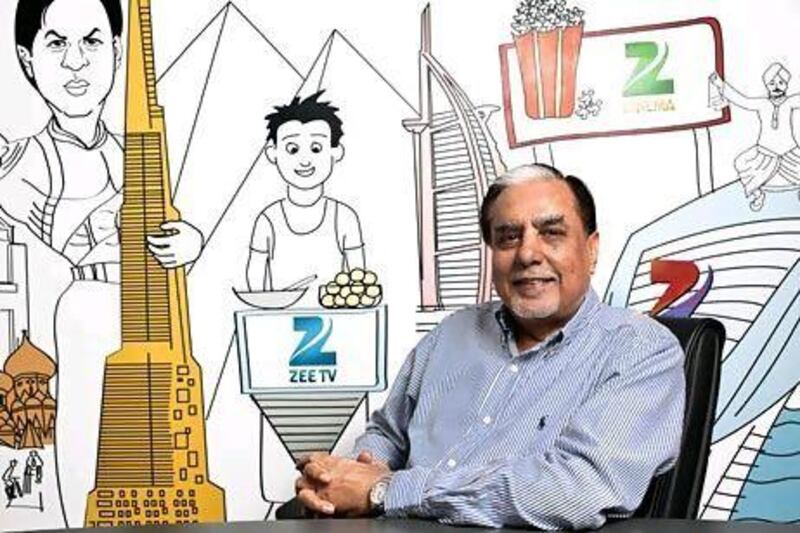The billionaire owner of India's Dish TV satellite network has vowed to crack down on the illegal reception of its channels in the UAE.
Subhash Chandra, the chairman of Dish TV's parent company Essel Group, says he is looking to work with the UAE authorities to stop residents tuning in illegally.
Thousands of people in the Arabian Gulf receive unlicensed satellite feeds from Dish TV, costing regional broadcasters millions of dollars a year in lost revenue, analysts say.
Viewers can either register for a Dish TV subscription using an address in India, or buy the equipment locally through illegal resellers.
Mr Chandra said he intended to "clamp down" on such practices.
"I'd like to seize this equipment. I'd like to give a message to the people ... that this is illegal," he said.
"We would work with the [UAE] Government and administration to put some kind of legislation by which they could be stopped. We are doing that - we are working on it already."
Authorities in the Emirates have already launched several initiatives to stamp out illegal viewing of satellite TV stations.
Last year, the Dubai Police raided dozens of buildings said to be receiving pirate TV feeds, while the UAE Ministry of Economy said in 2009 it would take strict action against those selling illegal satellite receivers.
David Butorac, the chief executive of OSN, said the illegal reception of satellite feeds was a "significant problem" for the pay-TV industry.
"It impedes our ability to invest in south Asian content," he said. "We are keen to work with the authorities to stop the illegal importation and reception of these services."
Ali Ajouz, a media consultant based in the UAE, said the problem of illegal Dish TV viewing had a serious impact on pay-TV operators such as Pehla and OSN, as well as the TV services offered by Etisalat and du.
"If you assume that 50,000 subscribers will have taken Pehla Prime if Dish TV was not available, then Pehla's losses could be estimated at US$18 million [Dh66.1m] per year," he said.
It is possible to pick up the Dish TV satellite signal in the UAE, Oman and parts of Saudi Arabia - although no definitive figures are available as to how many people are doing so.
At least 60 per cent of the UAE's south Asian community is illegally subscribing to Dish TV, according to one estimate quoted in 2010.
Mr Ajouz said more than 100,000 people across the entire Gulf could be illegally watching Dish TV, although he stressed no official figures were available.
"Across the region, including Oman and parts of Saudi Arabia, it is estimated to exceed 75,000. I heard some estimates exceeding 100,000," he said. Solutions to the problem include the enforcement of anti-piracy laws and shifting the satellite signal so it does not cover the Middle East, Mr Ajouz said.
Dish TV subscribers may record their home addresses as being in India but it is impossible to tell where they actually receive the satellite feed, Mr Chandra said.
"We don't know whether the person is watching it in the UAE, or where he is watching," said Mr Chandra.
The executive said telecommunications regulations in the UAE could be used to stamp out the illegal practice. The Telecommunications Regulatory Authority (TRA) did not respond to a request for comment.
Mr Chandra is ranked in Forbes magazine's list of the world's billionaires with a net worth estimated at $1.8 billion.
His Essel Group also owns Zee Entertainment, one of India's largest media companies. That company recently invested $100m launching a new Arabic-language TV station called Zee Alwan.





